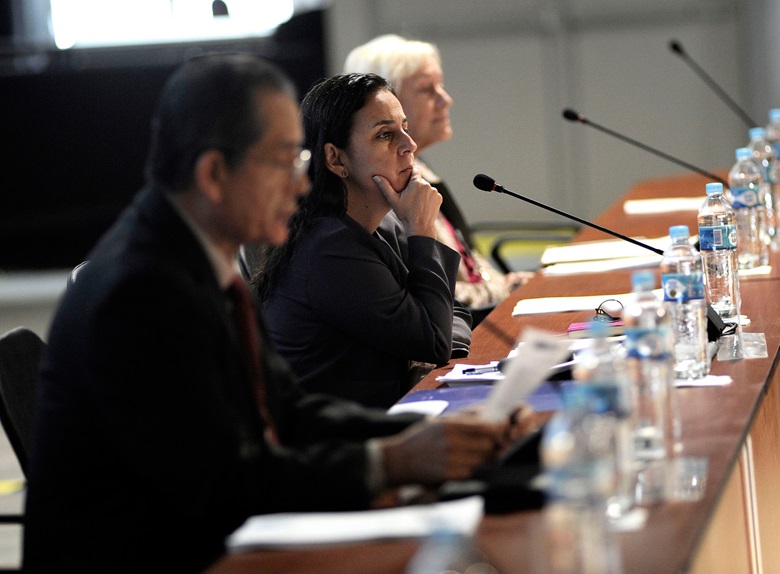Ministers, Officials Maneuver to Stem Emerging Health Crises

Health Ministers and officials from APEC member economies have endorsed new collaborative actions to defend against escalating health threats like the Zika virus while mitigating the effects of greying populations and increased susceptibility to chronic diseases on healthcare services across the Asia-Pacific.
Strengthening the capacity of the region’s health systems to cope with shocks that put lives and productivity increasingly at risk is the focus of measures to be taken forward by APEC economies over the coming year. They are detailed in a joint statement and annex issued by Ministers and officials after meeting with senior representatives from the private sector this week in Lima.
View the Joint Statement and Annex of the APEC High-Level Meeting on Health & the Economy
The move supports the adoption of health management responses advocated by APEC’s Healthy Asia-Pacific 2020 Initiative and detailed in an implementation roadmap. It also lays a foundation for achieving the 2030 Sustainable Development Goals in the region, whose 3 billion people account for 40 per cent of the world’s population and 60 per cent of global GDP.
“Peru is working with its APEC partners and industry stakeholders to ensure there are sufficient resources available and effectively deployed to care for our people,” explained Dr Patricia Garcia, Peru’s newly appointed Minister of Health. “We have agreed to exchange best practices and innovative approaches to building high-performing health systems that can respond when tested.”
Attention is on improving budget and workforce planning, resource allocation and waste reduction to ensure quality care, in coordination with academia, business and industry organizations. Developing and sharing data to drive policy innovation, effective physical and mental health interventions by practitioners, and reliable impact measurements is a further point of emphasis.
“Delivering on APEC’s commitment to raise health system efficiency and sustainability will not only safeguard hundreds of millions of lives but could also lift the GDP of the region’s economies by 4 to 8 per cent,” noted Dr Victor Cuba, Chair of the APEC Health Working Group and head of international cooperation at Peru’s Ministry of Health.
“APEC with its focus on economic issues is the right place to discuss the fiscal policies needed and the impact of health on the economy,” added Dr Maureen Goodenow, Chair of the APEC Life Sciences Innovation Forum Planning Group and Associate Director for AIDS Research at the United States’ National Institutes of Health.
APEC economies seek to ease GDP losses estimated to hit 6 to 8.5 per cent over the next 15 years due to fallout from early retirement, aging and the proliferation of chronic diseases ranging from Alzheimer's to cancer and diabetes. To this end, Health Ministers and officials have called for greater engagement with finance ministries to gauge the fiscal and economic implications of ill-health and ways to sustain healthy and competitive workforces.
Complementary work in APEC will help to establish conditions that provide incentives to pursue new medicines and technologies, drawing on advances in areas like 3D printing, cell and tissue therapies and personalized medicines. This includes encouraging cross-border research and development linkages amongst universities, public research institutions and the private sector.
“There are real opportunities to take healthcare innovation and health product accessibility to the next level in the APEC region,” said Dr John Lim, Executive Director of the Centre of Regulatory Excellence at the Duke-National University of Singapore Medical School (Duke-NUS).
“Implementing regulatory frameworks and rules that are balanced, relevant and science-based will facilitate effective flows of patient and product information that are key to maximizing the potential of authorities and industry to protect lives and livelihoods,” he concluded.
The next APEC High Level Meeting on Health and the Economy will take place in Ho Chi Minh City, Viet Nam in August 2017.
# # #
For additional information, or to arrange possible media interviews, please contact:
David Hendrickson +65 9137 3886 at [email protected]
Michael Chapnick (in Lima) +65 9647 4847 at [email protected]
More on APEC meetings, events, projects and publications can be found on www.apec.org. You can also follow APEC on Twitter and join us on Facebook and LinkedIn.
